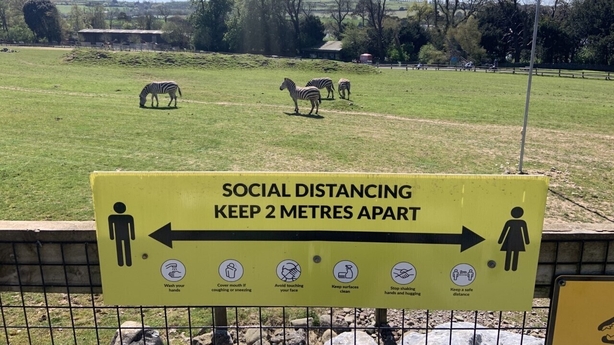A number of birds in Dublin Zoo, Belfast Zoo and Fota Wildlife Park have been moved indoors due to cases of bird flu.
It follows advice from the Departments of Agriculture, which is also advised in Northern Ireland.
In a statement, Cork's Fota Wildlife Park said the move is part of "mitigation measures" to prevent the spread of bird flu and to protect the various bird species.
"Several of the bird species have been moved indoors, such as the Humboldt penguin and the Blue-throated macaw. The duck feeder is also closed until further notice. These measures have been taken to reduce the risk of the bird flu spreading from migratory birds to the captive populations in Fota Wildlife Park," the statement read.
"The birds will be returned to their habitats once the Department of Agriculture, Food, and the Marine advises it is safe to do so. We will notify visitors via our website when the birds at Fota Wildlife Park are back on view."

Fota Wildlife Park’s Director, Sean McKeown, said it is a precautionary measure and no birds have been affected so far at the Co Cork park.
Speaking on RTÉ's Morning Ireland, Mr McKeown said the strain of the virus in circulation this year is more virulent than in previous years.
"It's probably the most virulent strain we've had in a long time," he said.

Mr McKeown said that as birds from Northern Europe migrate south towards Ireland, they can carry this virus with them.
Mr McKeown said they carried out risk assessments around different species of birds.
"Species like our Humboldt penguin, where there's a lot of interaction with gulls for food, that was seen as a higher priority," he said.
"They're also quite endangered in the wild as well, so we considered that a species that we should take indoors."
Mr McKeown said having the birds indoors is "not ideal" for them.
He said that in previous years they were able to vaccinate birds prior to the migratory season, but they have not been able to get the vaccine this year.
The birds will return to the outdoors in about six weeks' time, he said.
"Earlier if we do get vaccines," he added.
In Dublin Zoo, the majority of birds have been moved indoors and are off view until further notice.
The species that cannot be seen by visitors include the Humboldt penguin, Chilean flamingo, waldrapp ibis, ostrich, little egret, peafowl, citron-crested cockatoo and Indian runner duck.

